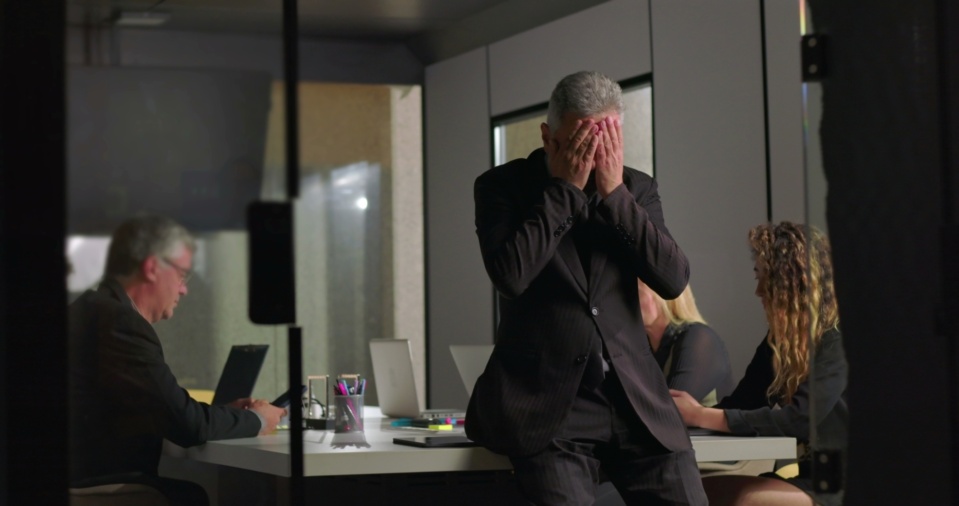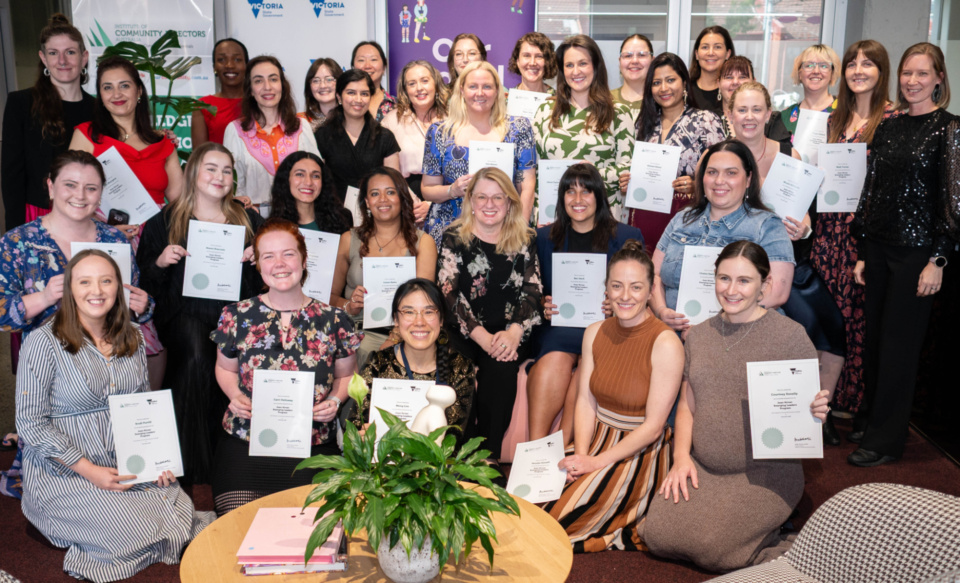
What not-for-profit leaders need to know in 2026
Posted on 12 Feb 2026
Our special NFP trends report distils the views of more than two dozen experts.
Posted on 19 Feb 2025
By Susan Pascoe, chair, Community Directors Council

Globally we began 2025 with distressing images of the catastrophic wildfires devastating greater Los Angeles and confirmation from meteorologists and climate scientists that the world is warming faster than predicted.

Extreme weather events are likely to increase in the future. Will the loss of human life and biodiversity, and the loss of homes and livelihoods on this scale, be a wake-up call that humanity is creating a bleak future for coming generations?
The reality is that individuals and governments alone will not be able to respond to, and recover from, a disaster on this scale. It will take communities and community organisations activating themselves to meet immediate needs and provide ongoing material support – water, food, shelter. Spontaneous local support was activated in LA neighbourhoods, and it is likely that charities and not-for-profits will be called upon to assist with ongoing support when the cameras roll on, and attention shifts elsewhere.
This is a grim introduction to a reflection on a new year, but I do see 2025 as a year of reckoning, a year when global action (and inaction) will impact us locally. How prepared and robust are we? Recent reports such as the Community Compass published in July 2024 and the Scanlon Foundation’s November 2024 Mapping Social Cohesion show enduring strengths in the Australian community, but worrying trends as cost-of-living strains put pressure on individuals and families.

The Scanlon report noted, “Financial pressures continue to be a strong drag on social cohesion. People experiencing financial hardships are much less likely to trust in government, institutions and other people in society, feel a substantially weaker sense of social oxidation and are more likely to have negative views on migrants and multiculturalism.”
However, both reports show that we feel engaged and connected in community, and continue to value social cohesion and fairness, despite some reservations regarding migration. Community organisations are valued, and are the locus for connection, building relationships and mutual support.
What does all of this mean for community, charitable and NFP organisations as we embrace the conclusion of the first quarter of the 21st century?
Here are three actions leaders can take.

It will impact all of us from increased direct pressure on services such as food, emergency responses and homelessness, and more generalised impacts such as increased insurance premiums, financial strain and geopolitical tensions. Organisations in the overseas aid and development sector are already seeing the disproportionate impact that climate emergencies have on the poorest communities, and the activism from frustrated impacted countries taking their case to the International Court of Justice.
What can we do? There are myriad small changes we can make in our personal and organisational lives from switching to renewables, recycling, choosing to avoid impulsive consumerism, and connecting virtually for some meetings. We can also advocate for governments to accelerate incentives, policies and programs that reduce our reliance on fossil fuels and take advantage of Australia’s natural advantage as a locus for renewable energy. And those in the overseas aid and development sector continue to advocate for policies that reduce the existential threat to our Pacific neighbours, and the provision of fair adjustment funding.
With federal and state elections in the first part of 2025 in Australia, it is timely to share the findings of the Social Cohesion and Community Compass reports with local members and in lobbying with ministers.
We are not simply the passive recipients of whatever policies the political parties put in front of us, but credible individuals and organisations who serve some of the most vulnerable members of the Australian community, and who have grassroots knowledge of the circumstances of those doing it hard.
Given the success of the independent candidates in the 2022 federal election, we are likely to see increased opportunity to put social issues to the fore. The independent candidates should be included in any lobbying efforts.
"Charities, NFPs and community organisations reliant on federal, state or local government funding are likely to face increased competition for government dollars."
The honeymoon period of Australia relying on mining for a sizeable proportion of its income is coming to an end.
There is increasing strain on government budgets, with deficits forecast federally and in some states. Already commitments have been made to infrastructure projects and to increased defence spending and we are likely to see more in the pre-election period.
The health and aged care sectors are facing a reckoning with policies increasingly requiring a mix of personal and government contributions to cover the cost of care.
All of this means that those charities, NFPs and community organisations reliant on federal, state or local government funding are likely to face increased competition for government dollars.
These entities can help themselves by demonstrating the value they add in reports of current projects, programs or services, by remaining connected to their communities, who are their best word-of-mouth advocates, and by maintaining ongoing relationships with local members.
The larger organisations, such as those in the health and aged care sectors, have peak bodies which undertake advocacy on their behalf, but there is no substitute for face-to-face communication at the local level, and investing in ongoing relationships.
Despite the grim opening to this reflection on trends for 2025, I retain hope that Australians have sufficient respect for our democratic institutions to trust electoral processes; that despite political differences we share common values; that despite budget pressures we fund support for the most vulnerable; and that despite our urbanisation, we understand the need to protect our heritage and environment.

Posted on 12 Feb 2026
Our special NFP trends report distils the views of more than two dozen experts.

Posted on 10 Feb 2026
As my family dropped our teenage son off at the airport in the first week of January to embark on a…

Posted on 11 Dec 2025
Community Directors trainer Jon Staley knows from first-hand experience the cost of ignoring…

Posted on 10 Dec 2025
As a qualified yoga instructor who learned the practice in her hometown of Mumbai, Ruhee Meghani…

Posted on 10 Dec 2025
Anyone working in an organisation knows it: meetings follow one after another at a frantic pace. On…

Posted on 10 Dec 2025
Stressed, overwhelmed, exhausted… if you’re on a not-for-profit board and these words sound…

Posted on 10 Dec 2025
The Institute of Community Directors Australia trains over 22,000 people each year, which gives us…

Posted on 03 Dec 2025
Many not-for-profit (NFP) board members in Australia are burnt out, overwhelmed and considering…

Posted on 26 Nov 2025
A roll call of Victoria’s brightest future leaders has graduated from a testing and inspiring…

Posted on 12 Nov 2025
At the Institute of Community Directors Australia, we believe that stronger communities make a…

Posted on 12 Nov 2025
Like many Community Directors members, Hazel Westbury is a community leader who isn’t easily…

Posted on 11 Nov 2025
I’ve seen what happens when fear of conflict wins out over taking a principled stand.